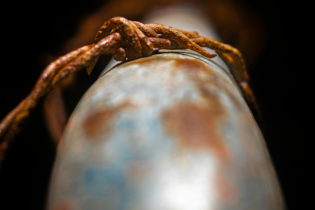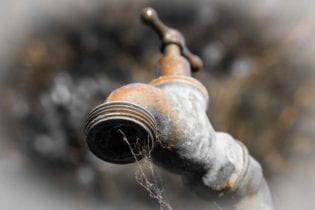September 2012: South Africa will run dry by 2050, should no action be taken to conserve water. It is pertinent that the key players in South Africa’s food industry implement strict water saving measures through the use of water recycling, to help address the impending water deficit that is threatening food security and produce all around the country.
According to Gareth Lloyd-Jones, Managing Director of Ecowize – a leading hygiene and sanitation company servicing the food sector, it is crucial for food producers and manufacturers to introduce elements of strict control through implementations of water saving disciplines, as water will always be a basic necessity. “All industries need water and therefore more people need to make the effort to recycle water and come up with other innovative ways to save and protect natural water resources,” says Lloyd-Jones. According to Lloyd-Jones, there is a critical need for food producers and manufacturers to realise the magnitude of this crisis and to take responsibility and make concerted efforts to recycle water and prevent water wastage often caused bypipe bursts,water leaks and unscheduled use of water. “Cost-effective water-saving disciplines include having a water recycling system in place whereby used water is drained through a filtration process to rid all solids and then put through a chemical intervention to make it suitable and fit to use back into plant facilities. This water can then be used to wash areas down such as drive ways.”Lloyd-Jones says companies should introduce universal benchmarks to set the right amount of water required for particular jobs, without any wastage. “This can be achieved via three important variables – value, the pressure and the temperature of the water.
“These variables need to be balanced and measured on a periodic basis as this determines the problem. One way of doing this is by measuring where water pressures are fluctuating as this will expose inconsistencies or leaks by conducting thorough root cause analysis, farmers will be able to determine the cause of the problem and eliminate chances of it re-occurring,” says Lloyd-Jones. Furthermore, he says in order to avoid unscheduled use of water, food producers and manufacturers need to introduce strict elements of control that set aside specific times that apparatuses such as hoses can be used. They can also use specially designed couplings that are manufactured to protect the hose against leaks. Lloyd-Jones says food producers and manufacturers will also be able to save enormous amounts of water by providing staff with efficient water saving training that help to develop their skills and knowledge in order to enable them to identify the cause of water waste and ways to solve such problems. “For best results and in order to ensure that staff make a concerted effort, farmers can implement water saving incentives such as performance pay systems, which are driven by how well staff obey set water saving disciplines,” says Lloyd-Jones.





